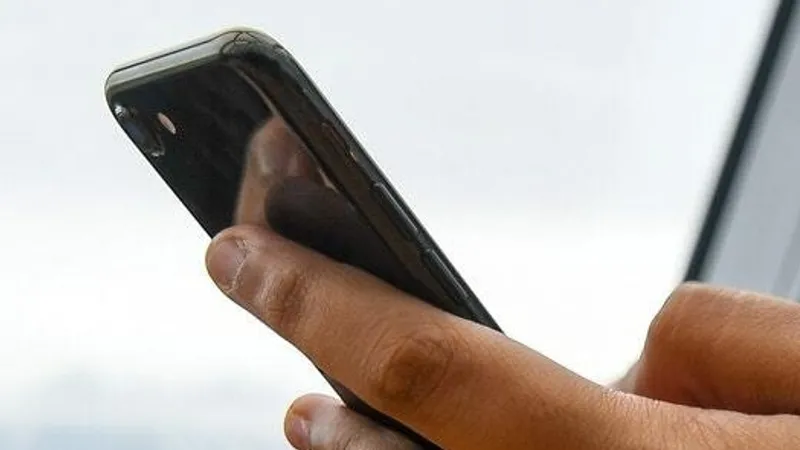Add, remove & assign phone numbers on demand
Manage, respond to, and share calls with your team
Send & receive any message you need to
Keep contact details in one place with a shared phonebook
For on-the-go teams to share messages, calls, and contacts
A full directory of all our included features

SMS texting: The secret weapon for small businesses

Big brands have consultancies, data analytics teams, advertising agencies, market research departments, public relations personnel and access to social media influencers. What do small businesses have? SMS or short message service.
That’s right. If you’re an independent business, trusty SMS is your secret weapon.
Wait, did you just roll your eyes at the mention of SMS? Well, we’re not entirely surprised, as most small business owners are unaware of the power and influence of SMS marketing. Here are some stats about SMS that every small business needs to know:
The importance of SMS marketing
Three-quarters of consumers are inclined to receive SMS that has special or discounted offers
Close to 74 per cent of consumers read all text messages
Millennials would rather receive appointment reminders through SMS
Text messages can decrease the number of missed appointments by 80 per cent
In SMS marketing, around 29 per cent of consumers click on the links
70 per cent of consumers feel that text messages are an excellent medium for businesses to communicate with them
More than 60 per cent of businesses don’t use text messages
So, all the research shows that SMS is exceptionally effective and growing in popularity as a marketing medium. But what makes it particularly effective for independent businesses? Why should small businesses make it their primary arsenal to grow their business? Well, here are five good reasons for you to consider business text messages.
Using SMS to give your business an advantage
Over the past year, our mobile habits have changed fairly dramatically, in fact, there has been a huge increase in device usage due to the Coronavirus outbreak among internet users in the UK. So now, more than ever, is a great time to take advantage of SMS.
After multiple lockdowns and seemingly endless changing of rules, it has been an extremely difficult year for many businesses – and that's putting it mildly. When it comes to business recovery in the coming weeks, months and even years, customer engagement has never been more essential. Using SMS for business is a great way to stand out from the crowd – while inboxes go unread for days, SMS converts.
So how can you use SMS to give your business a competitive advantage?
6 reasons why small businesses should use SMS
1. It’s simple
SMS is the simplest form of digital communication in a world that’s increasingly turning to smartphones for everything from shopping and entertainment to business and professional services. But nobody needs an advanced phone or a gadget to read and reply to an SMS. All they need is a basic feature phone.
SMS is the perfect tool for reaching a wider potential audience. Plenty of people who have smartphones may not know how to use the more advanced features. But most of them would be comfortable with text messages. For local businesses that have been catering to customers for decades, SMS is the right medium to reach them.
2. It’s super engaging
Research has shown that due to its ease of use, customers are more active on text than they are on social media or email. One reason is that text messages are the easiest medium for people to engage with. You can open your SMS, read new messages and exit the app without having to click on too many things or wait for new windows to load.
What this means is that there’s little resistance to opening an SMS. The consumer knows that they won’t have to go out of their way to engage with a text message. Emails can sit unread for days and many are even deleted without reading, so it stands to reason that SMS has a much higher chance of being read.
With high open rates comes high conversion rates with one report suggesting that 32 per cent of recipients respond to SMS offers, with texted coupons redeemed 10 times more often than traditional coupons. Couple this with the fact that the recorded conversion rate of email is only 3 per cent, it’s clear the opportunities that SMS marketing presents.
3. It’s fast
All it takes is a few seconds to read a text message. You can do it while cooking dinner, waiting for a cab or during a commercial break on TV. With email or social media, that’s not the case. Customers may put off opening it because of the expected workload. You never know how long an email or social media post is going to be, not to mention the attachments.
SMS is also faster from the point of view of the small business sending it. If you have a limited-time offer, an SMS that gets opened immediately is the best medium for promoting it quickly to your customers. Who knows when the customer will go through their email or see your social media post?
4. It’s personal
You’ve been running your small business for years. You know the locality and its people. The relationships that you’ve built are more personal than professional. So why not send an SMS, which is the most personal of all mediums?
There are other ways to communicate, including Facebook Messenger, but the fact that it’s short and requires minimal effort makes SMS special. Plus, remember that text messages are how you communicate with your family and friends. That’s the reason the medium feels personal compared with others.
Collecting personal data well can transform your business. In many cases, it's likely that you are able to collect data on your customers that includes personal information and their shopping habits – all of which can be used to make more relevant campaigns. You can use this data to tailor recommendations and messaging on customers' past behaviour and interactions with your business, which is more likely to convert into more revenue for you and a more personalised shopping experience for them.
By building a more personal relationship with your customers, you can make them feel special, which will result in greater customer loyalty.
Smaller, independent businesses can use SMS beyond traditional marketing and sales methods. If you are keen to engage customers more with your brand and improve your customer service, consider what you could do to break away from your direct competitors.
5. It’s easy to manage
SMS is one of the easiest platforms for small business owners to manage. You don’t have to start learning about Google algorithms or trending digital marketing terms. Text messaging is something you already know.
Texts are easy to write: so easy that you don’t need anyone else’s help and you can quickly customise them according to the recipients in order to humanise your business.
6. Channel preferences
With 75 per cent of people wanting to have offers sent to them via SMS, it is the ideal way to communicate with customers. However, offers and discounts aren't the only things that customers want to receive via SMS.
One area to have thrived during the pandemic is e-commerce, so if you're offering delivery or a click-and-collect service, SMS is a great way to keep customers updated about their orders and for brands to engage with their target audience. Retail trends emerging from the pandemic suggest that consumers prefer to support local, independent businesses and shop local. If you run a business that can capitalise on this trend, SMS should be an integral part of your plan.
Monitor, track and improve your ROI with SMS texting
Businesses mistakenly believe that SMS marketing requires heavy investment in complicated apps, does not allow for personalised communication and lacks strong analysis to support Return on Investment (ROI). In reality, access to mobile communications is far easier than perceived for smaller businesses and gaining access to mobile consumers can be as simple as sending a personalised, targeted text message.
You might be surprised to know that tracking meaningful ROI, identifying customers engaging via text message and monitoring delivery rates are all possible through SMS. Broadcast SMS services often include detailed analytics as part of their packages, which allow businesses to create further targeted campaigns and continually build a better understanding of their mobile database. Not only does this mean that companies have the potential to save money and improve ROI, but by segmenting out numbers that are least likely to respond, SMS allows businesses to target those customers via other channels if necessary.
SMS texting can reduce business costs
SMS is essentially digital information. Because of this, all data can be analysed quite easily and in detail. Providing you have segmented your communications effectively, for example, promotion texts, service texts etc., then all of the SMS messages sent to your customers can be stored, tracked and analysed. That's pretty impressive, right?
This level of analysis can allow you to see what is – and isn't – working, which in itself enables you to refine your SMS messages until you achieve a better ROI. SMS texting is a far more cost-effective sales strategy compared with some others, such as leaflet drops.
In short
SMS isn't a medium of the past. For small businesses and independent stores, it’s a marketing tool of the future. It’s exceedingly simple, effective and can be highly personalised. In other words, it is exactly the sort of marketing communication tool that small businesses should be using regularly.

Continue reading
What is SMS texting and is it still relevant today? No matter how many texts you've sent, you might not know the answer. Check out our guide to find out!
Nothing rivals the power of an SMS text blast. Is SMS the obvious solution to the marketing challenges faced by your small business?




